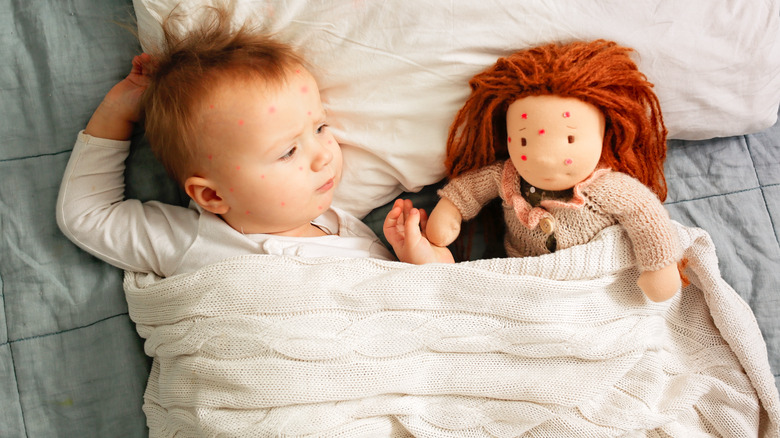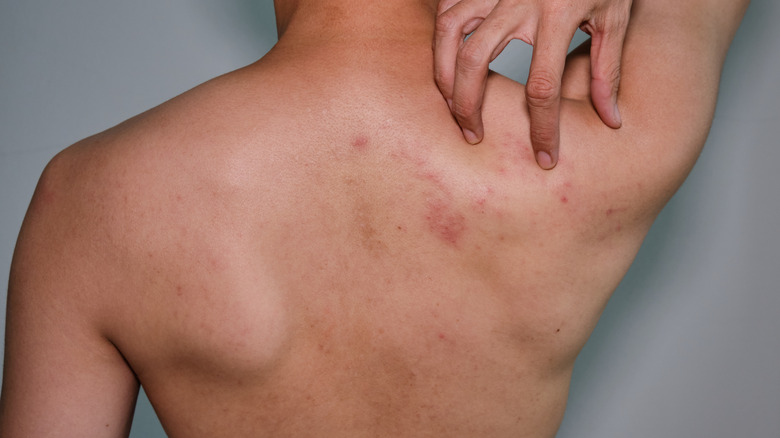This Is How Long Chickenpox Is Actually Contagious
You don't need to be an epidemiologist to know that chickenpox is a very contagious disease. Before vaccines were available, catching chickenpox at some point was practically inevitable. Chickenpox infected 4 million people each year, causing over 10,000 hospitalizations and over 100 deaths. Fortunately, vaccines have greatly reduced the incidence of chickenpox. Despite a rapidly growing population, there are now 92% fewer cases, 84% fewer hospitalizations, and 90% fewer deaths from chickenpox in the United States (per CDC). A small number of vaccinated people still catch chickenpox, but they generally have mild cases with fewer blisters and faster recoveries (per New York State).
Although chickenpox is commonly viewed as a children's disease, it is possible for adults to catch it if they have never had it nor been vaccinated. In fact, an unvaccinated person who has never had chickenpox has a 90% chance of catching it if it enters their household, and for adults, this is particularly dangerous. Adults who develop chickenpox are 25 times more likely than children to die from it (per National Foundation for Infectious Diseases).
According to New York State, people can catch chickenpox by touching an infected person or something an infected person recently touched, or even simply by being near an infected person who is coughing or sneezing. A newly infected person typically starts showing symptoms two to three weeks after exposure.
A person with chickenpox is often contagious until all their blisters have dried out
Unfortunately, a person may be able to spread the disease before you can even tell that they have chickenpox. They can be contagious from one to two days before they develop a rash, until all of their blisters have dried out and formed scabs (per CDC). According to Kid's Health, it is not uncommon for new spots to appear after some blisters have already dried up, and it typically takes up to two weeks for all blisters to crust over.
If a person is vaccinated, it is possible to develop blisters that do not scab. According to the CDC, such a person is contagious until they have gone a full day without developing any new blisters.
Historically, since chickenpox was viewed as practically inevitable, many parents would deliberately expose uninfected children to people with chickenpox in order to "get it over with", since chickenpox is much more dangerous for adults than children. The CDC strongly advises against this practice, since it is possible even for healthy children to suffer serious complications from the virus. Now that vaccines are widely available, vaccines should be our first step in protecting our children against chickenpox.


